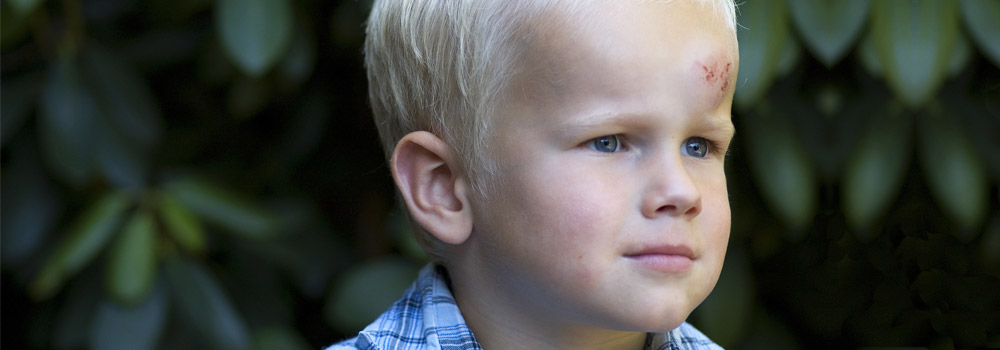Minor cuts, bumps and bruises are a normal part of growing up. Allowing your child to explore the world around them (with supervision) helps them develop and learn. Most of your toddler's bumps will require no more than a cuddle to make them better. You will quickly be able to tell by the noise of the bang, the reaction of your child and the colour of the area affected, which are the more serious bumps. If your child has unexplained bruising or injury you need to find out how this happened.
If it looks like the bump may swell then use a cold flannel (soaking the cloth with cold water) or ice pack (but don't put ice directly onto the skin) to help reduce swelling and to cool the area for at least a few minutes.
If your child has had a bump to the head and it looks serious or symptoms worsen call a Doctor.
If your child is under a year old and has a bump on the head get advice from your GP.

